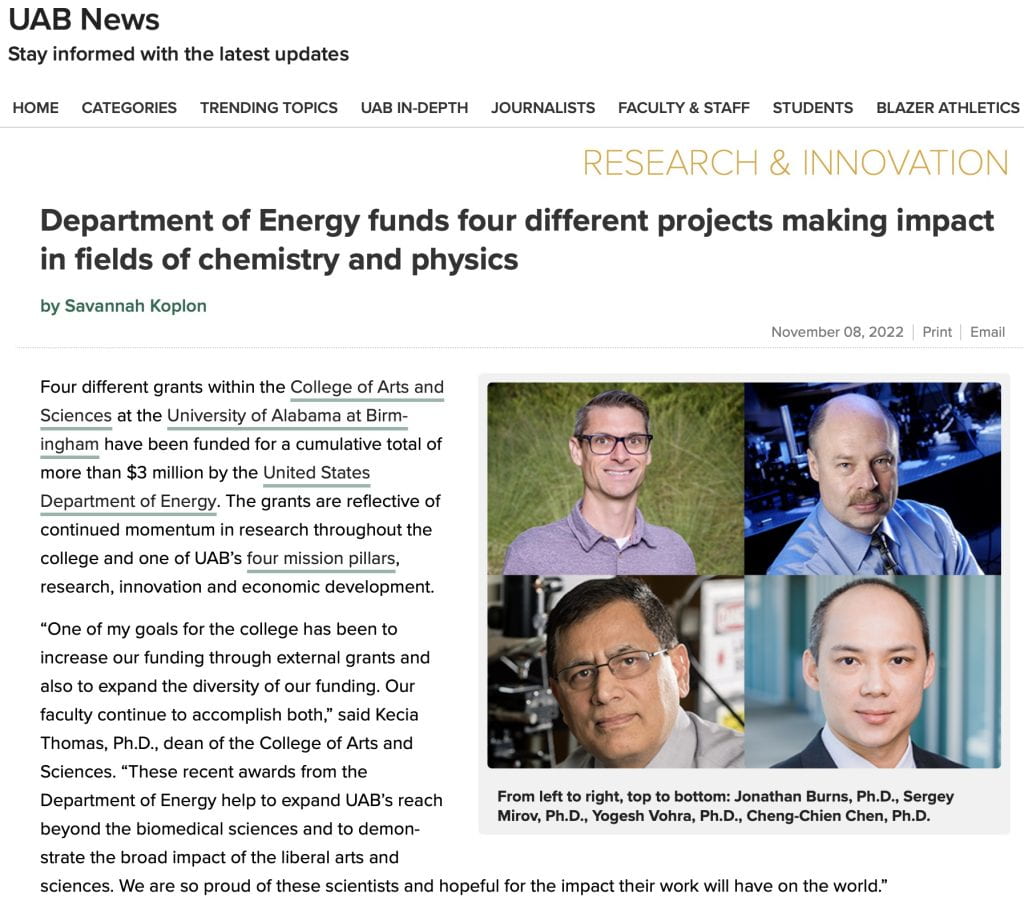Thank you CAS Communication for highlighting David’s great work in UAB News!

Thank you CAS Communication for highlighting David’s great work in UAB News!

Congratulations to David Russell, the second-place winner in the Federation of Analytical Chemistry and Spectroscopy Societies (FACSS) Student Poster competition as a part of the SciX 2024 Conference held in Raleigh, NC, from October 20–25, 2024. Great work, David!

Thank you CAS Communication for highlighting David’s great work in UAB News!
Congratulations to Luke Sadergaski and the entire team for the recent acceptance of a new paper, “Leveraging Design of Experiments to Build Chemometric Models for the Quantification of Uranium(VI) and HNO3 by Raman Spectroscopy” in Frontiers in Nuclear Engineering!

Our Group Hexavalent Actinide Separation: A Single-Step, Proliferation-Resistant Approach to Nuclear Fuel Reprocessing project hosted a booth at the 2024 ARPA-E Energy Innovation Summit in Dallas, TX this week.

Thank you to UAB News for highlighting our recent ARPA-E CURIE program proposal, Group Hexavalent Actinide Separation: A Single-Step, Proliferation-Resistant Approach to Nuclear Fuel Reprocessing, which was has been selected for funding.

In collaboration with Oak Ridge National Laboratory, our project, Group Hexavalent Actinide Separation: A Single-Step, Proliferation-Resistant Approach to Nuclear Fuel Reprocessing, has been selected for funding by the ARPA-E CURIE program. This project aims to develop a single-step technology to recycle used nuclear fuel (UNF) that can recover the bulk of uranium (U) and transuranics (TRU) as the first step after dissolution in nitric acid. We will work toward the recycling of UNF through the co-crystallization of oxidized TRU with uranyl nitrate hexahydrate. This single-step, group actinide separation will (1) significantly reduce the volume of light-water reactor high-level radioactive waste that requires permanent disposal, (2) provide an appropriate fuel feedstock by combining U/TRU in a single product stream, (3) reduce fission product content in the product stream to <0.1%, and (4) provide compatibility with online monitoring technologies.